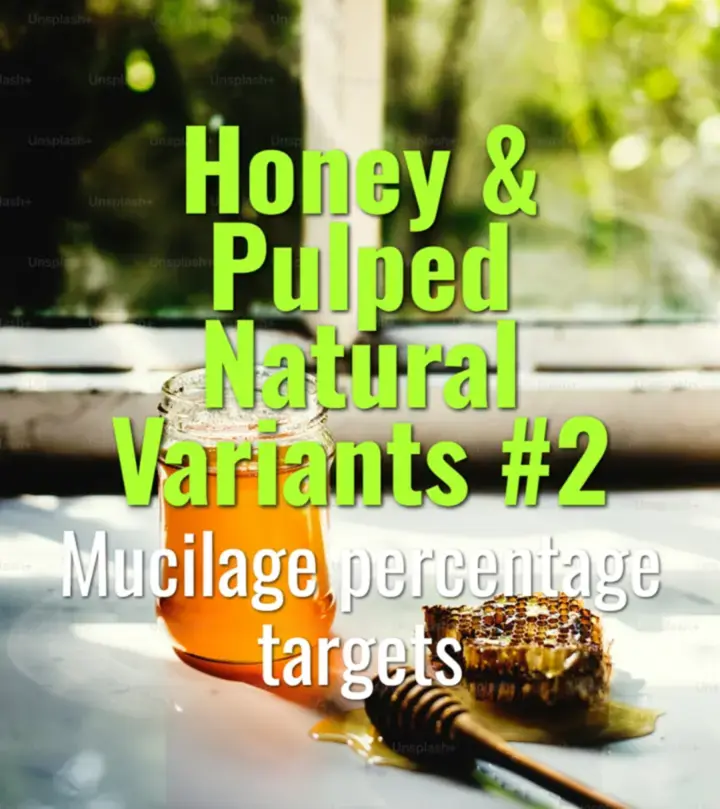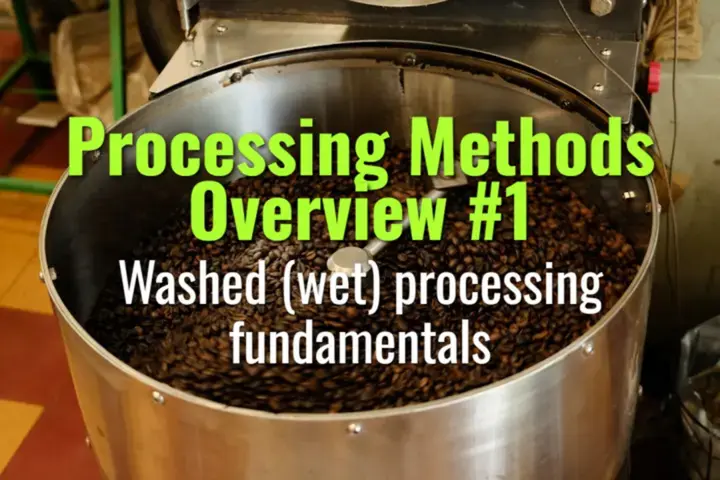
Mucilage percentage targets
This topic explains how mucilage percentage targets define honey and pulped natural processes, the methods used to control them, and how different levels affect flavor and risk during drying.

This topic explains how mucilage percentage targets define honey and pulped natural processes, the methods used to control them, and how different levels affect flavor and risk during drying.

This topic explains the practice of soaking coffee after fermentation, why some origins use it, and how it affects flavor, cleanliness, and consistency in washed coffee profiles.

This topic explains demucilagination—the removal of mucilage from coffee beans—through mechanical and enzymatic methods, comparing them with traditional fermentation and highlighting their impact on efficiency and flavor.

This topic explains the first steps in washed coffee processing—cherry reception and flotation sorting—detailing how farmers ensure only ripe, quality cherries move forward in the process.

This topic explains the fundamentals of washed (wet) coffee processing, covering the main steps, advantages, challenges, and sensory outcomes of this widely used method.

This topic explores the characteristic flavor profiles of coffees from different continents, showing how terroir, cultivars, and processing methods shape sensory identities across regions.